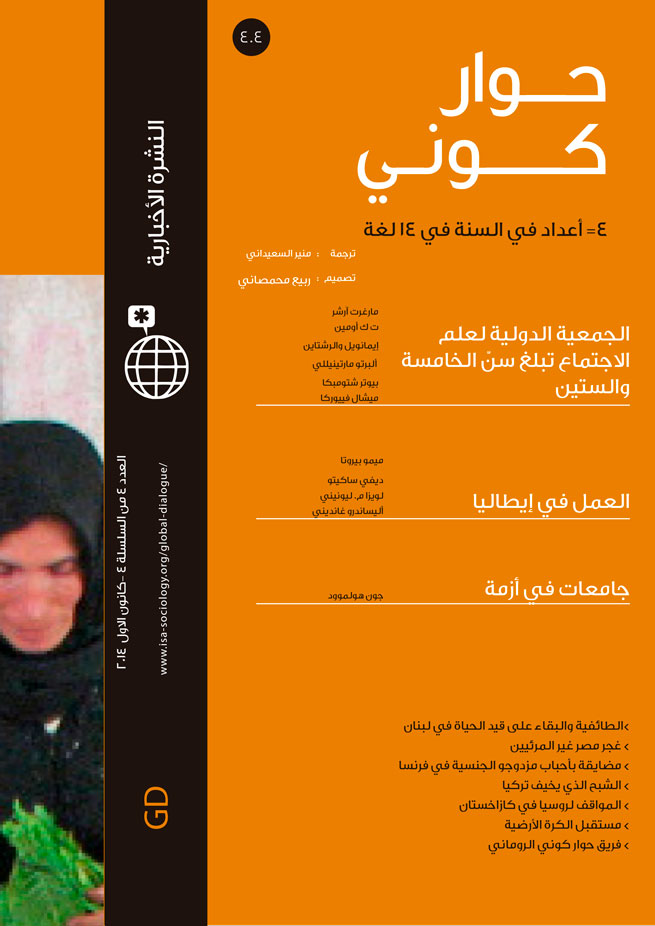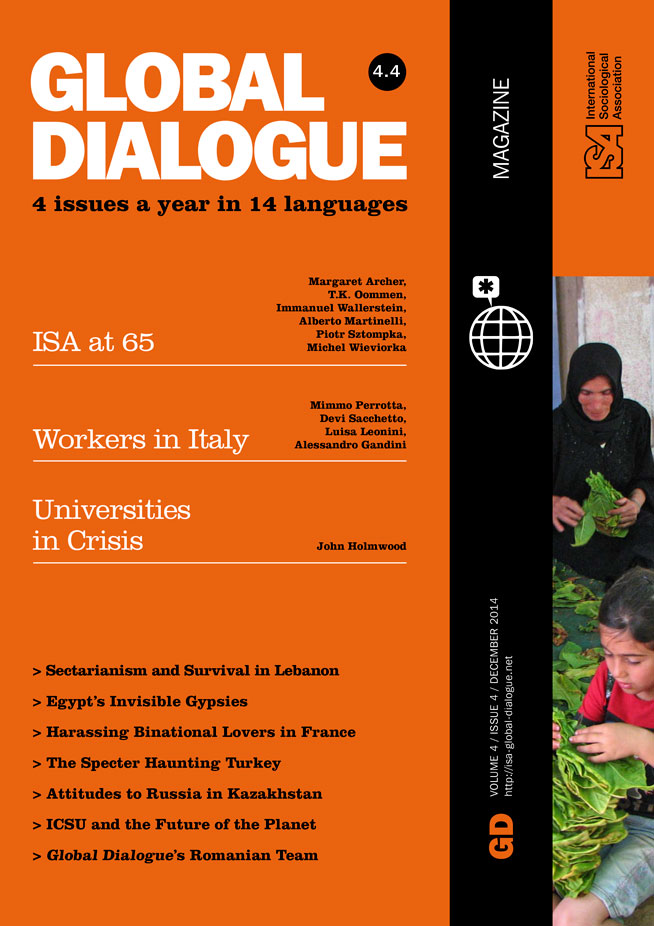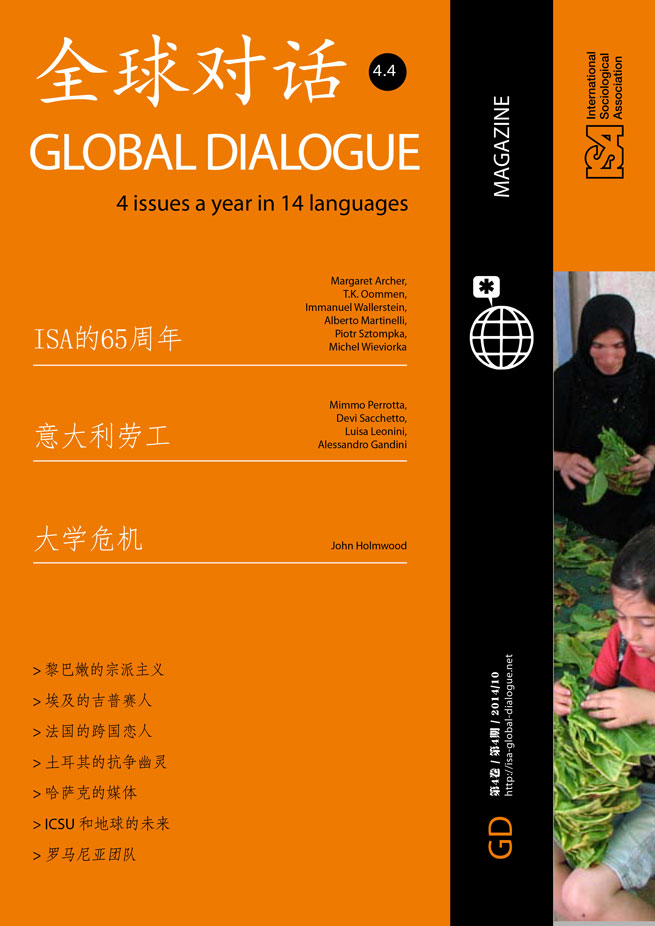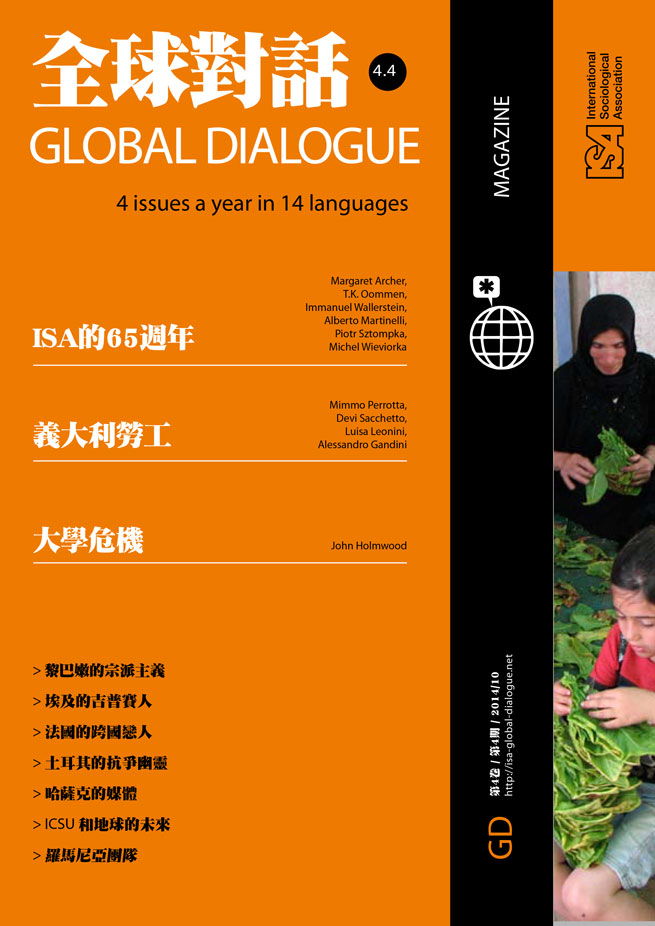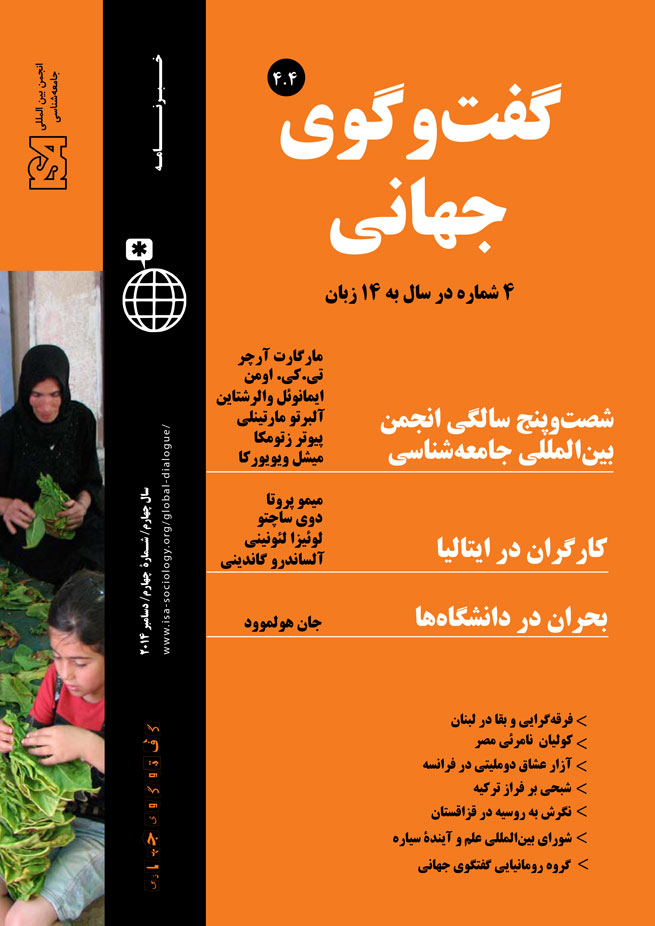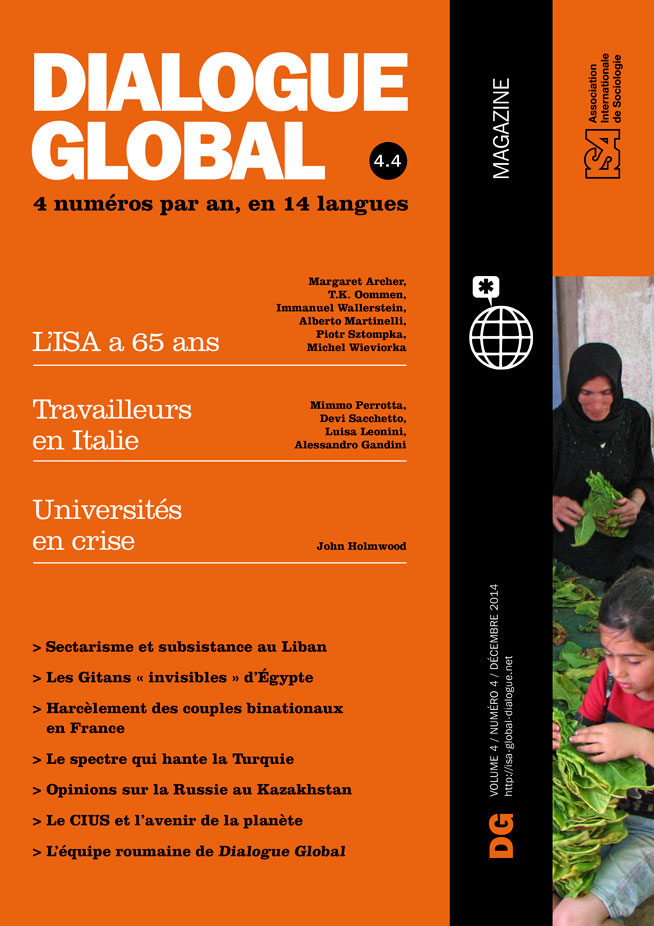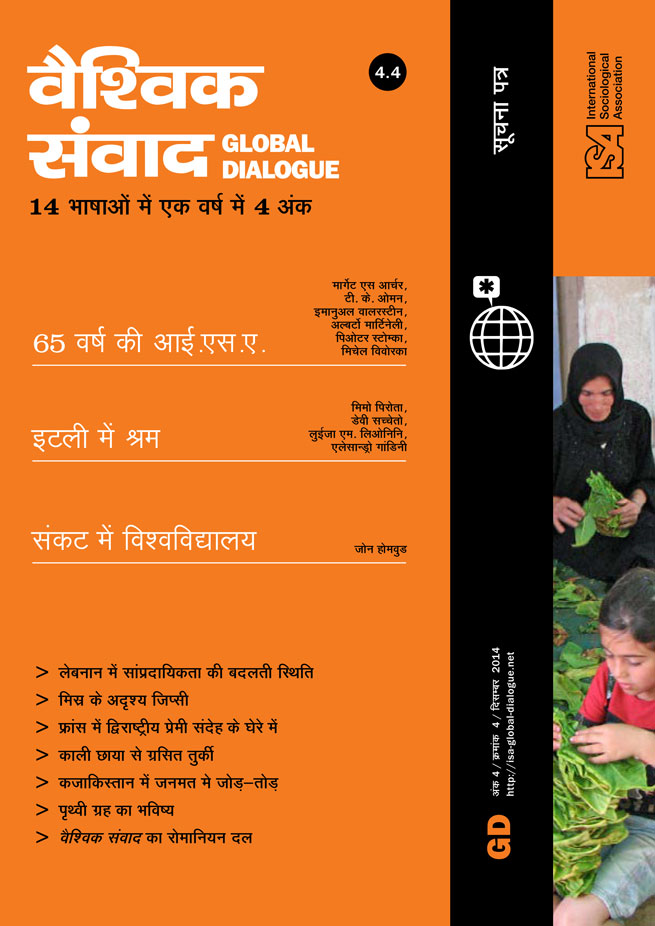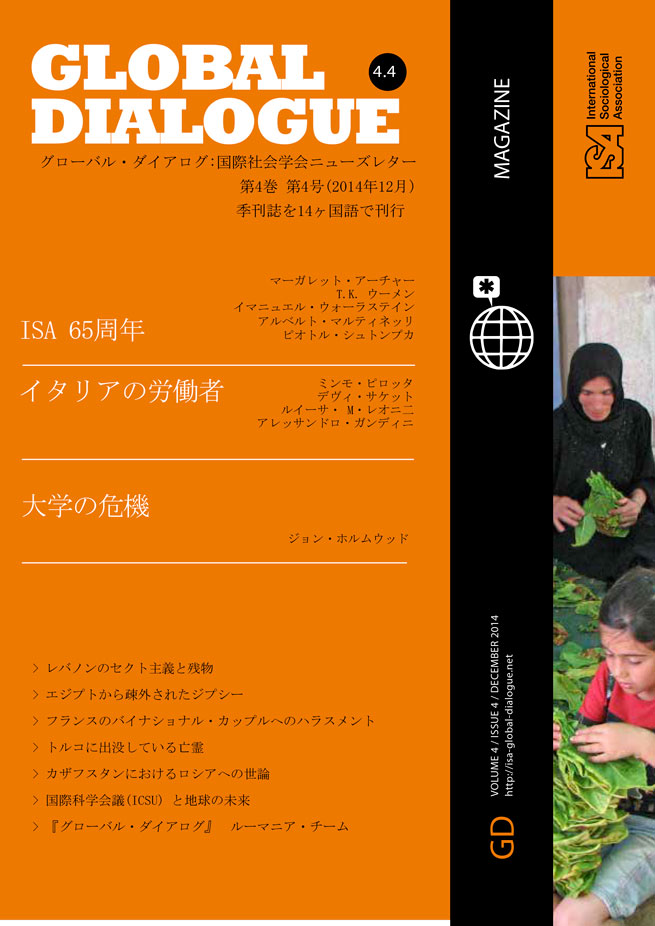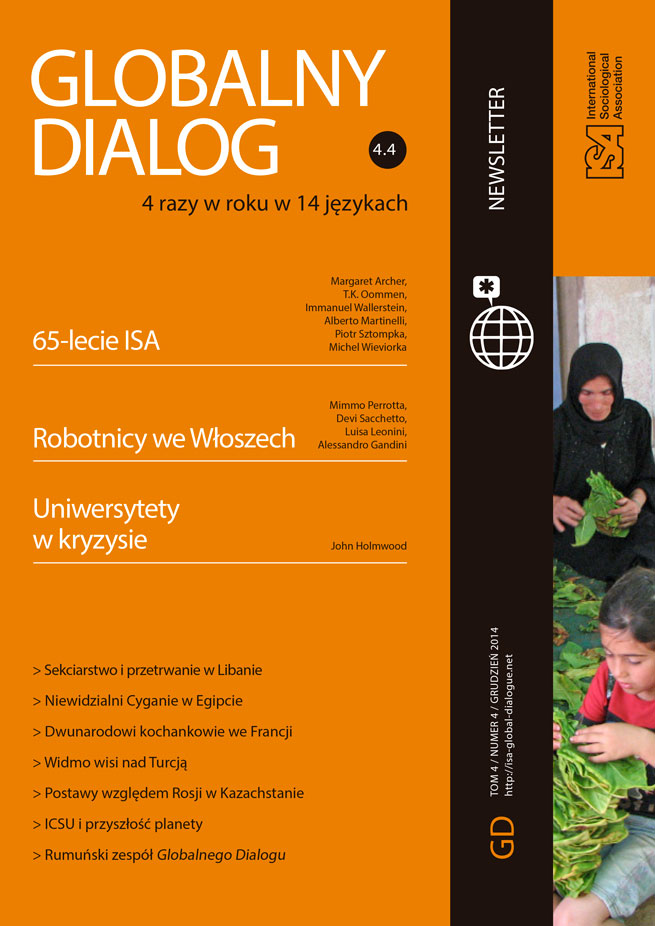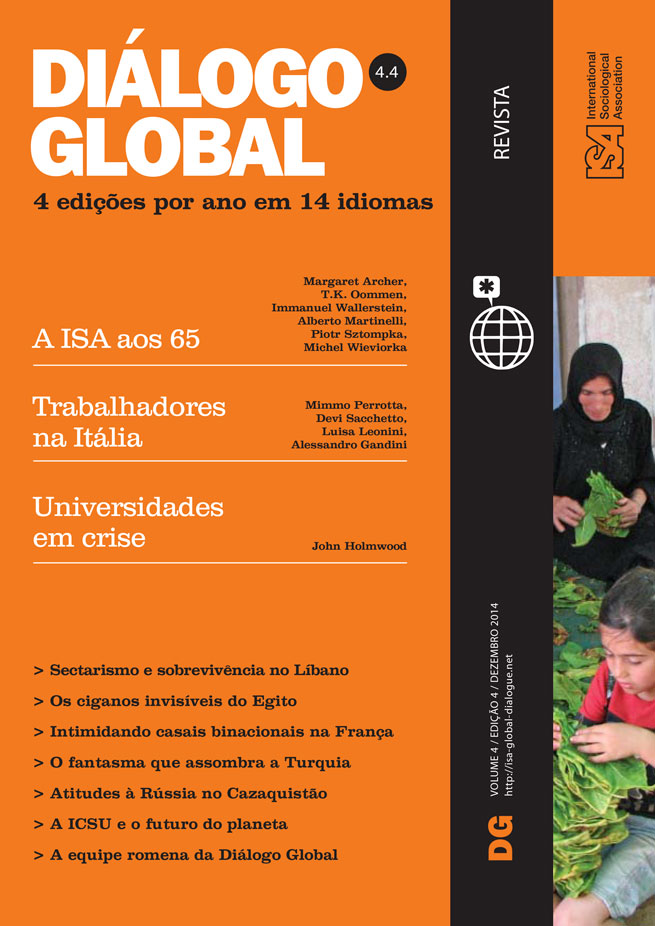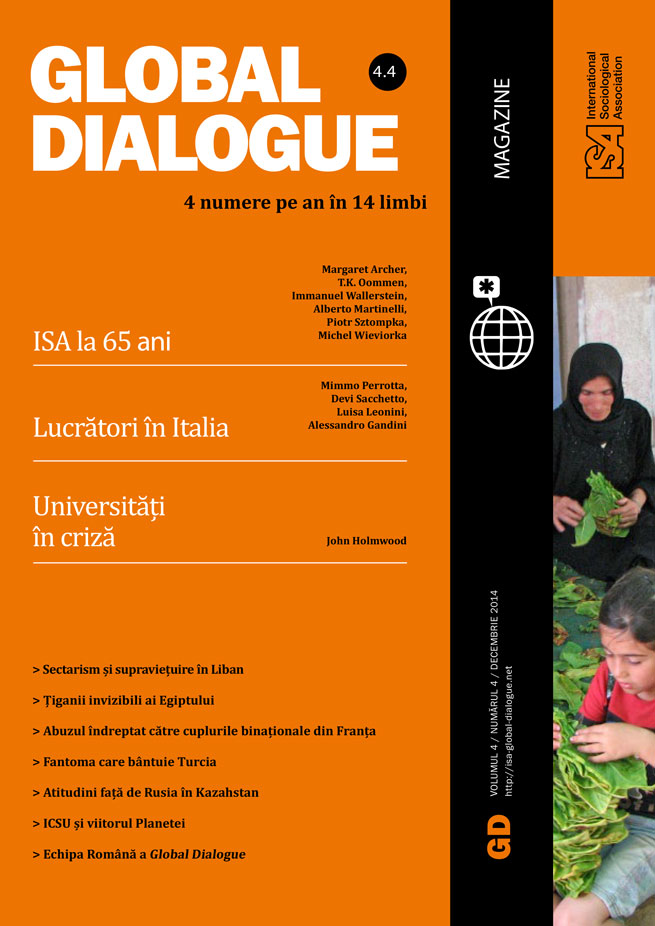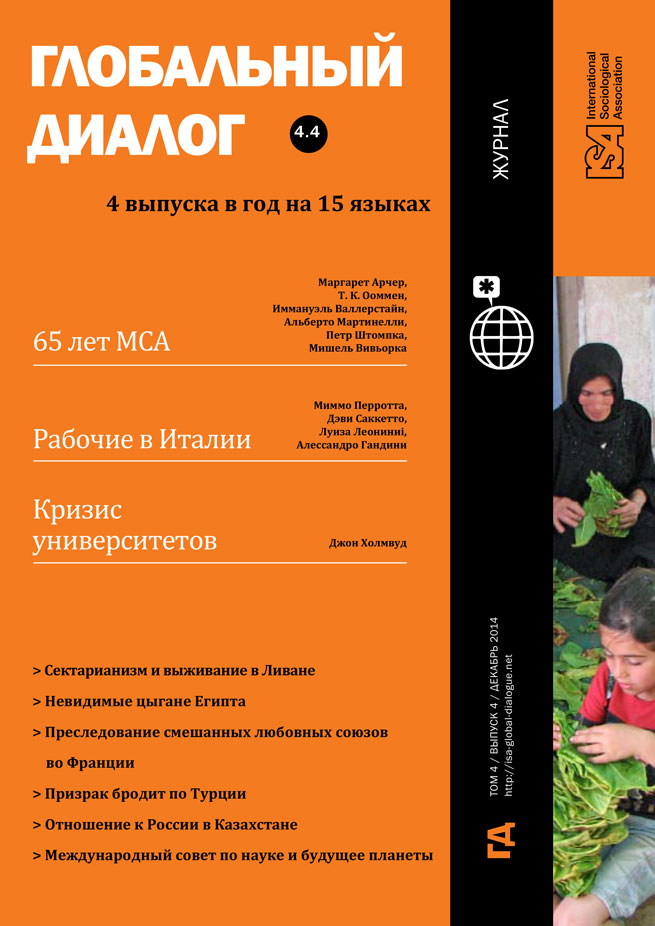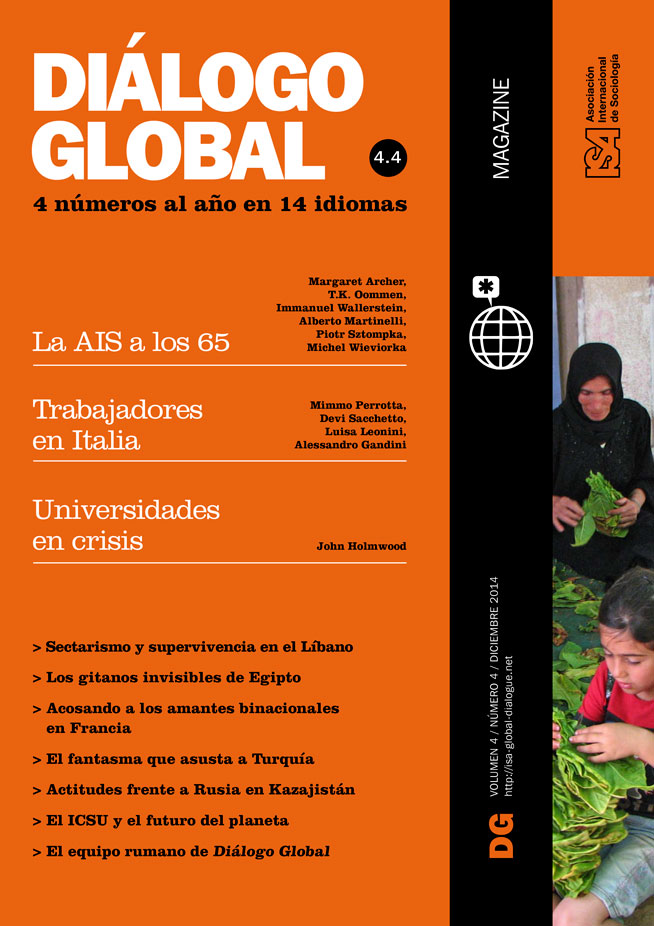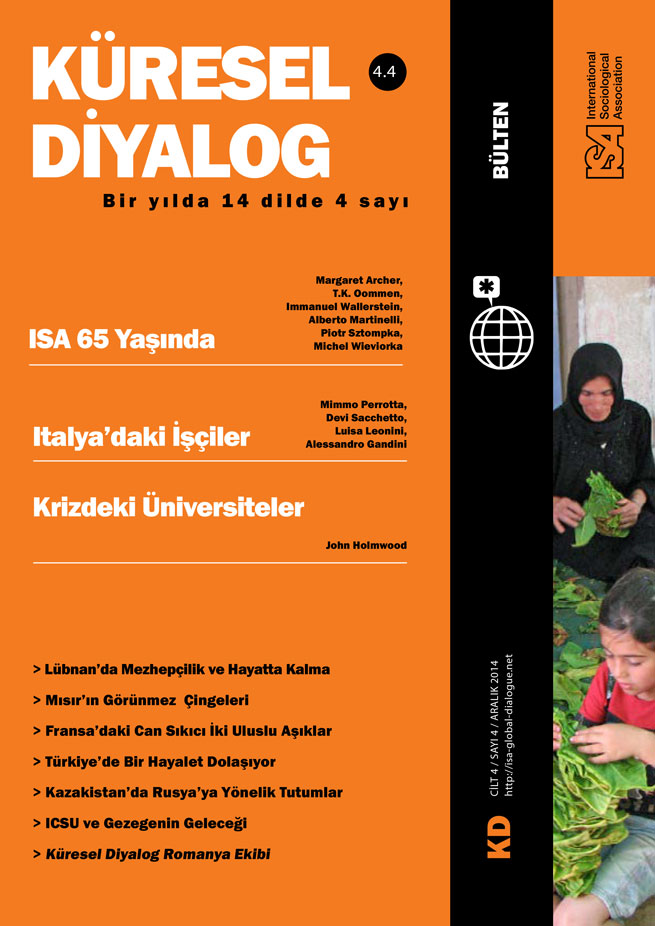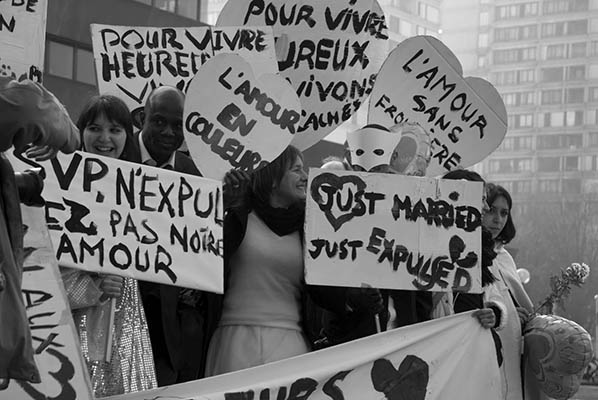Read more about The Discriminated Outsider

Egypt’s Invisible Gypsies
by Alexandra Parrs
December 12, 2014
“It was crazy! The French government gives orders to Moroccan authorities and Consulates to avoid abuses, but there are committed couples like us who are paying the price of very different policies in France […] Then you have the humiliations.”[1]
Over the last decade, the rights of binational couples uniting a European Union citizen and a Third-Country National (TCN) have been profoundly eroded. As residents but not citizens, TCNs are entitled to a limited range of rights and their situation has become increasingly precarious. In France, for instance, the government uses legal-administrative means and invasive practices to interfere with the intimate lives of binational couples, both same-sex and heterosexual. Moreover, the French authorities seem to protect some nationalities and family types more than others.
Through interviews with couples, multi-sited ethnography, and participant observation of organizations defending binational families and migrants’ rights, such as Public Ban on Lovers and the Association for the Recognition of Homosexual and Transgender Rights for Immigrants and Residents, we explore legal reforms, a changing political context, and the attitudes of officers in charge of administrative practices that affect binational couples in France today.
In France, immigration policies distinguish between “selected” migration (immigration choisie, i.e. highly qualified migrants and needed workers) and “imposed” migration (immigration subie, i.e. family migrants and asylum seekers). Migrants who come to join partners or to establish families are considered an “imposition” – despite the fact that family migration is, in theory, protected by the Constitution and international conventions. In public discourse, family migration mixes national paternalism and the construction of boundaries. In reality, TCNs’ treatment depends on their country of origin, religion, sex, and sexual orientation: migrants from certain post-colonial countries such as Morocco or Algeria face more restrictions than others, because of their already significant presence in France; fears of a perceived “Muslim invasion” and the amalgam between “Arab” and “Muslim” affect the daily lives of couples.
Paradoxically, legislative implementation also affects French citizens who marry or form civil unions with TCNs. Stigmatization thus affects both TCNs and their European partners, who become “strangers” in their own society, suspected of threatening national identity because of their choice of a foreign partner.
Restricting Migration
In France there are deep contradictions between the law and practice. Restricting family migration has been a legal priority since 2003, when five successive laws burdened the daily lives of binational couples. In 2006 two laws, “Sarkozy II” and “Clément’s law” aimed to identify fake marriages.
“Marriage has greatly evolved over the past few years, becoming a major migration issue […]. The number of fraudulent unions that are broken up by the mayors and diplomatic consular agents never stops rising” (P. Clement, National Assembly Speech, 22.03.2006)
The Civil register officer is required to interview future spouses together “or, if necessary, separately.” An officer who suspects fraud may refuse to authorize the wedding, requiring a criminal inquiry. In practice, since 2004, any spouse lacking a regular French residence permit must provide further information. Even after marrying, couples must prove the stability of their relationship and, at each appointment for renewing the TCN spouse’s residency permit, the French spouse has to go along to the Prefecture, providing bills or common documents to certify common family life.
By 2009 political discourses described binational marriages as the “first source of immigration,” sometimes raising fears of a new category of marriage, the “marriage of hidden convenience” or “gray marriage” (mariage gris) – in which one partner is deceived by a foreign partner who only seeks French residence – in contrast to the marriage of convenience commonly called “white marriage” (mariage blanc), that is, a formal marriage in which the French partner is fully aware of the partner’s real intentions, helping to fool authorities. Out of the 278,600 marriages celebrated in France in 2004, 5,272 were transmitted by the Civil Register officers to the police (1.9%); of these, 737 were considered invalid, including 444 marked as marriages of convenience[2]. In the end, only four people were convicted of a marriage of convenience.
To attain citizenship, the law requires that TCNs demonstrate “assimilation to the French community” (language test, knowledge of French citizens’ rights and duties, etc.). Marriage itself does not provide automatic access to French nationality: the delay in eligibility for citizenship has been extended from six months after marriage in 1984 to four years today.
Administering binational marriage
Administrators controlling migration have acquired more and more discretionary power[3]. The officials that deliver visas, residence and work permits must protect national security, and they often have a prejudicial vision of migration rather than a comprehensive knowledge of the rules. These officers occupy a lower position in the hierarchical administrative ladder, and their exercise of power depends on how they conceive of their work and the immigration question.
Officially, it is the Prefect who decides which foreigners should receive authorization to legally stay in France. But, in practice, binational couples, like all migrants, confront what Alexis Spire calls “foreigner counters” – officers who have daily dealings with migrants in a “dirty position,” removed from the bosses whose orders they are supposed to implement. “Dirtiness” comes from contact with foreigners and can be grasped by the “smells and the sounds [of foreign languages]” that pervade the waiting rooms of local offices – in contrast to the clean calm of the offices of the higher officials. The personal attitudes of the officers as well as the need to implement policy govern their interaction with spouses. Spouses have to negotiate their status with bureaucrats who have no real decision-making powers. They are under the ultimate authority of higher officials who are almost never in contact with foreigners.
Facing racism and xenophobia
Immigration policies concerning binational families have led to multiple types of discrimination. As TCNs are unwanted, looked down upon by police and government workers, both their French spouses and the French officers who work alongside foreigners become what Goffman would term “initiates”, individuals who work with stigmatized individuals, and risk having the stigma extended to themselves. Traits such as age, economic status, and appearance may quell suspicions regarding couples’ sincere love, but this does not allay the stigma attached to foreigners and all who work with them.
The private lives of binational couples become public, as these individuals speak openly about their relationships, feelings, love, and problems, to solve the impasse of their situations and to denounce the stigmatization of their marriages. Interestingly, the French state and binational couples propose definitions of marriage that are not far from one another. For the two sides, love is the condition sine qua non of marriage. Institutional racism or governmental xenophobia, however, erode the boundaries between the private and the public spheres, and invade their family life.
[1] Notes from Laura Odasso’s fieldwork journal, December 10, 2009.
[2] Belmokhtar, Z. (2006) “Les annulations de mariage en 2004.” Infostat justice 90: 1-4.
[3] Spire, A. (2008) Accueillir ou reconduire, enquête sur les guichets de l’immigration. Paris: Raisons d’agir.
Manuela Salcedo, École des Hautes Études en Sciences Sociales (EHESS), Paris, France <manuesalcedo@gmail.com>
Laura Odasso, Université Libre de Bruxelles, Belgium, and member of ISA Research Committee on Biography and Society (RC38) <la.odasso@gmail.com>
This issue is not available yet in this language.
Request to be notified when the issue is available in your language.
If you prefer, you can access previous issues available in your language:
